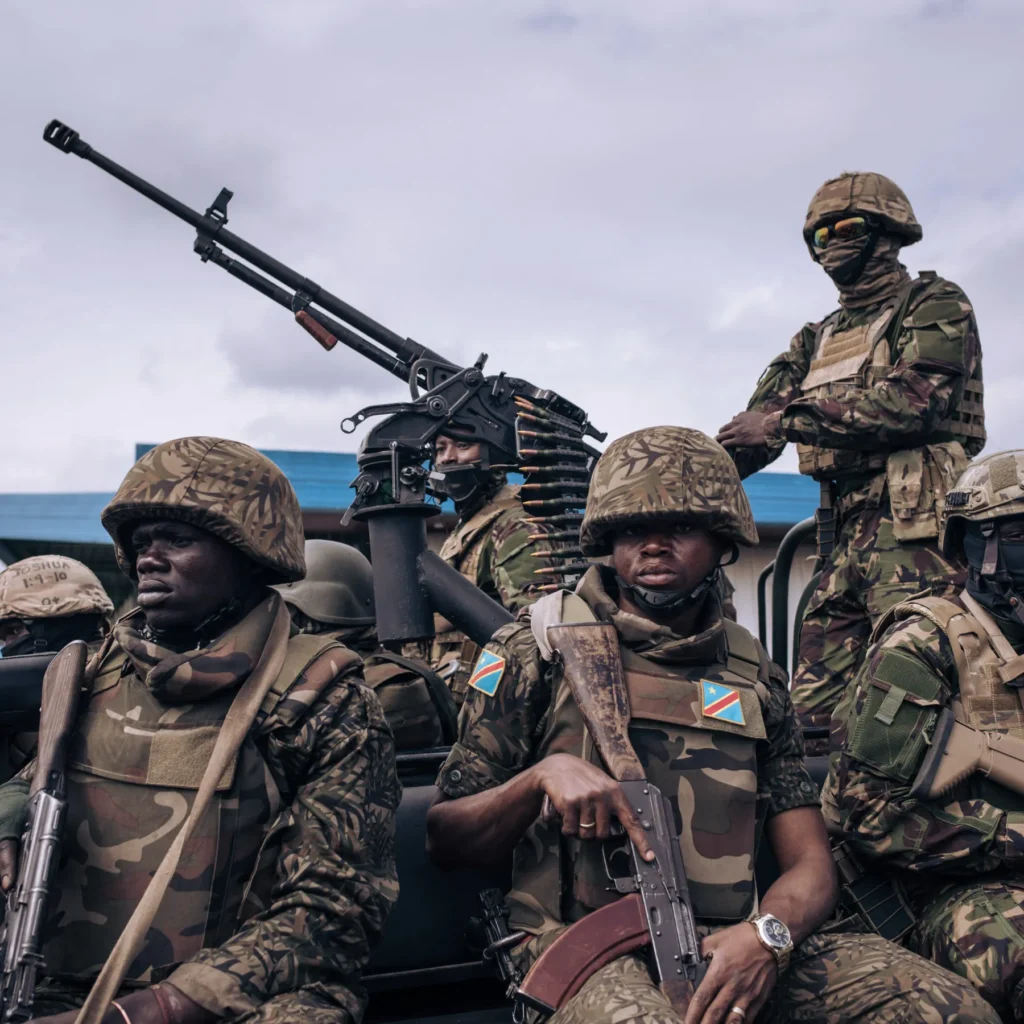After seizing large swaths of eastern Congo including key cities Goma and Bukavu the M23 rebel group now faces a critical test: governing a region home to more than five million people. While their uprising aims to eventually overthrow the government in Kinshasa, M23 must first demonstrate their ability to stabilize and revive local economies in the territory they control.
Key challenges include:
- Banking paralysis: Banks remain closed under central government pressure, leaving residents and businesses cash-strapped. The M23’s reopening of CADECO bank branches has had limited impact, with no access to national or foreign banking networks.
- Tax burdens and revenue generation: M23 has imposed steep taxes on coltan mining (15%), traders, and businesses to fund its operations. Aid agencies and local businesses face the dilemma of paying rebel taxes while avoiding sanctions from the U.S., EU, and other Western powers.
- Coltan and mineral control: The Rubaya region, producing up to one-sixth of the world’s coltan, is a major revenue source for the rebels. M23 collects up to $450,000 monthly from coltan taxes alone, with additional income from tin and gold mines.
- Public services and administration: M23 has appointed governors and is training civil servants, but without full banking access or international legitimacy, governance remains shaky.
Despite bustling daytime activity in rebel-held cities, nights remain tense with patrols and militia presence. The rebels’ ability to maintain control hinges not just on military dominance but on delivering basic services and economic stability something they are struggling to achieve amid sanctions, supply disruptions, and widespread poverty.
Western nations have responded with sanctions against Rwanda, which the UN accuses of backing M23 a claim Kigali denies.

